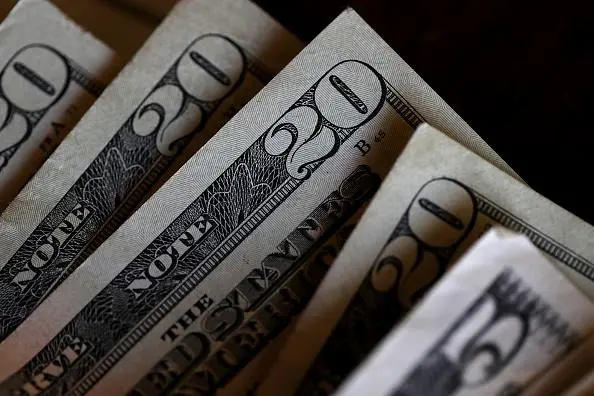PHOTO
Fourteen business deals were signed here yesterday during the Philippine Business Forum, where President Marcos promoted the Philippines as a 'reliable partner' of investors who wish to expand their operations.
Trade Secretary Alfredo Pascual said the agreements would generate Australian investments worth $1.53 billion or about P86 billion.
'We are presenting 14 business agreements that have been signed, and these agreements are poised to drive our investment relationships and contribute to Philippine economic growth,' the trade chief said.
'These agreements signify our unwavering commitment to excellence and fruitful partnerships spanning diverse sectors such as renewable energy, waste-to-energy technology, organic recycling technology, countryside housing initiatives, establishment of data centers, manufacturing of health technology solutions and digital health services,' he added.
Pascual said the sectors are indicative of future Philippines-Australia business engagements and serve as 'tangible outcomes of investment promotion.'
Among the memoranda of understanding signed were the development, design, construction, commissioning and funding of a tier-3 data center with a capacity of 30 to 40 megawatts in the Poro Point Freeport Zone with a land area of about 16 hectares, and expansion of next-generation battery manufacturing in the Philippines.
Also inked were MOUs for the deployment of decarbonization solutions comprising orchestration of renewable energy, storage and e-mobility to New Clark City Stadium and other Bases Conversion and Development Authority (BCDA) sites to lessen energy costs and reliance on grid power, improve sustainability and achieve progress on decarbonization.
The business forum also highlighted the agreements for collaborative partnership on the development of an electric transportation framework throughout the properties associated with BCDA in the Philippines; an MOU supporting the government's Pambansang Pabahay para sa Pilipino Program or the national housing program; an MOU for the establishment of collection centers and a recycling facility for plastic waste in the Philippines using innovative organic recycling, synthesis of biomass and carbon utilization and material synthesis technologies from an Australian university, and the export and distribution of the resulting material for Australian food and beverage firms.
The trade department also presented the signed MOUs for the manufacturing of portable, affordable and accessible automated external defibrillator solutions and their distribution; an MOU on the partnership of the National Development Co. and an Australian company that would allow the transfer of waste-to-energy technology that converts biowaste to green fuel to the Philippines, and a deal that seeks to establish a globally recognized institute in the Philippines to be known as the Southeast Asia Biosecurity Institute that focuses on developing more biosecurity robust supply chains across the region.
Letters of intent were sent for the biomass fueled (thorium pellets) simple-high-temperature gas-cooled power plant with a 40-MW baseload power to deliver a safe, sustainable, affordable, CO2 neutral, green baseload energy in the Philippines, and for the development of digital health services focusing on artificial intelligence and machine learning to improve healthcare availability in the Philippines.
During the forum, which was attended by economic managers and investors, Marcos highlighted the policies undertaken to improve the ease of doing business in the Philippines and the importance of public-private partnerships. He also cited the role of Congress in carrying out reforms but did not mention efforts to amend the economic provisions of the 1987 Constitution.
'We prioritize the ease of doing business, exemplified by efforts to simplify tax payments, streamline regulations, and showcase our unwavering support for businesses,' the President said.
Marcos said his administration is keen to explore new avenues of cooperation and foster mutually beneficial partnerships that are commercially meaningful and have a social effect.
'I invite esteemed Australian businesses to consider the Philippines as a reliable partner that can support your expansion and operations. Let us embark on a journey of strengthened economic ties, mutual growth, and shared success,' the President said.
'The members of my economic team will provide the support needed by your businesses for investments to continuously grow and prosper. Together with you as our strategic partner, we can make investments happen in the Philippines. I am confident that the relationships forged here today will contribute significantly to the economic vibrancy of both our nations.'
To encourage Australian investors to come to the Philippines, Marcos mentioned the executive order establishing green lanes for strategic investments, simplifying procedures and reducing bureaucratic hurdles and the enactment of three priority economic bills, namely the Public-Private Partnership Code of the Philippines; the Internet Transactions Act and the Tatak Pinoy Act or the 'Proudly Filipino' Act.
'So, we continue to accelerate and deepen policy reforms to improve the environment where businesses such as yours will continue to thrive,' Marcos said.
'We remain steadfast and our commitment to purposeful reforms, evident in key legislative amendments. And it is why we always ask members, the leaders of the legislature, to join us,' he added.
The Marcos administration is pushing for amendments to provisions of the 1987 Constitution that are said to be restricting the entry of foreign investments. Lawmakers supportive of charter change have given assurances that they won't seek the lifting of term limits and would only focus on economic provisions.
Marcos also welcomed the opportunity for greater cooperation on climate change and energy transition, saying renewable energy is 'a very important' part of the government's strategic planning.
'We accord great importance to addressing climate change and achieving energy transition, as we in the Philippines are highly vulnerable to the climate crisis,' Marcos said.
'We have put in place several energy transition policies, investment enablers such as incentivizing energy efficiency and conservation, that will support and facilitate the efforts to decarbonize the economy. This move strengthens our dedication to environmental stewardship and encourages the private sector to actively engage in sustainable practices.'
Copyright © 2022 PhilSTAR Daily, Inc Provided by SyndiGate Media Inc. (Syndigate.info).





















